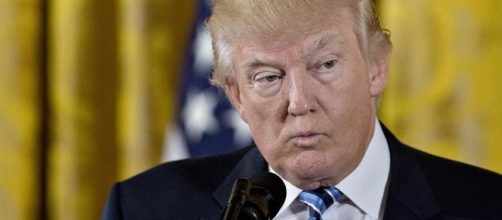The White House was never seen as a house of horrors but now you could call it that and few would bat an eye. The president is not Freddie or Hannibal but it is common to see comments at the New York Times by his opponents that say Trump scares them out of their minds.
People really love paying to be scared out of their minds! https://t.co/a1uKGpcU80
— Entertainment Weekly (@EW) April 29, 2017
Back in December Vox said fear is a "totally rational" reaction to the man in the White House. Dara Lind at Vox noted explicit cases of fear and alarm that have actually become exacerbated during the first 100 days of this president.
First on the list is terror over being deported and harassed because of one's status or one's Muslim faith. Lind also shared the fears of a colleague who believed her oversized child might grow up to be large and mistaken for a cop and in danger because of that. Clearly, the fear factor was a theme that went against sentiment calling for unity rather than resistance.
Trump on Twitter
Twitter is a daily fear monitor. Today fears center around North Korea and what the White House has in mind. No one knows. No one knows what Trump intends. Uncertainty and suspense are paramount. This is probably what Obama meant when he flagged drama as a no-no for presidents.
Imagine what President Trump can do in 2,920 days.
— Trumpism 2.0™ (@Team_Trump45) April 29, 2017
Scary stuff huh liberals... pic.twitter.com/VVepSWmvtn
White House Counterpoint
There is an odd element to the entire thing.
Fear is seen as a liberal reaction and Trump's followers are saying as the tweet above suggests that this is the real world folks. We are playing hardball. The implication is that all the Trump bluster is simply a smart way to achieve a safer result than liberals might achieve by proceeding with care and caution. At the end, if the result is that there is no major, major conflict the Trump folk will have the last laugh. It's a little like the man-up meme associated with Sarah Palin and Arnold Schwarzenegger.
Beyond the President
One could compile a substantial list of rational fears based on the actual record not only of the White House but of the president's appointments which includes a known racist in the driver's seat at the justice department and a known anti-environmentalist in charge of the EPA.
The president has issued proposals and executive orders that have a tangible negative effect on health and make it likely that any airborne infectious disease might have a much better chance of doing damage now than when the Center for Disease Control was not in danger of severe cutbacks. Trump is no more reassuring after 100 days than he was before he came to the White House. And the scariest thing of all is not knowing what to expect, a characteristic the president has often trumpeted as his strong suit.

